Economic Country

What are the economic implications of pursuing carbon neutrality for a country ?
Pursuing carbon neutrality has both positive and negative economic implications for a country, including job creation, innovation, energy independence, short-term costs, impacts on traditional industries, and potential carbon leakage.

How do economic indicators reflect the standard of living in a country ?
Economic indicators such as GDP, income distribution, employment rates, healthcare and education spending, housing affordability, and inflation rates are used to gauge the standard of living in a country. These metrics provide insights into economic performance and health, reflecting aspects like access to education, healthcare, housing, employment opportunities, and consumer goods. A higher GDP per capita, lower Gini coefficient values, higher employment rates, greater healthcare and education spending, affordable housing, and stable or low inflation rates generally indicate a better standard of living. However, these indicators should be considered collectively for a comprehensive understanding of the economic conditions that influence citizens' lives.

How do competitive sports contribute to the growth of a country's economy ?
Competitive sports significantly contribute to a country's economic growth by boosting tourism, creating jobs, generating media and advertising revenue, diversifying the economy, improving social welfare, enhancing urban development, and attracting foreign investments. Major sporting events not only provide temporary employment but also stimulate long-term infrastructure development and technology innovation. Moreover, they foster national unity and health benefits, indirectly contributing to economic stability. Overall, competitive sports are instrumental in showcasing a country's potential on a global scale, leading to numerous economic advantages.

How do economic indicators differ between developed and developing countries ?
Economic indicators reflect the health and performance of a country's economy, with significant differences between developed and developing countries. Developed countries typically have higher GDP and GDP per capita values, lower inflation rates, more robust social safety nets, and attract high levels of foreign direct investment (FDI). They also score high on the Human Development Index (HDI), have more balanced trade positions, and while income inequality exists, there are often stronger welfare systems to mitigate its effects. On the other hand, developing countries often have lower GDP and GDP per capita, higher inflation rates, less developed social safety nets, and receive less FDI due to perceived risks. They also tend to have lower HDI scores, struggle with trade deficits, and face more pronounced income inequality. However, it is important to note that each country is unique and may exhibit characteristics that do not strictly align with typical developed or developing country traits. Economic indicators should always be considered within the context of a country's specific circumstances.

How do immigration policies affect the demographics of a country ?
Immigration policies significantly impact a country's demographics, including population size, age distribution, ethnic composition, and socio-economic characteristics. Open borders can lead to population growth and younger demographics, while restrictive policies may result in slower growth or aging populations. Ethnic diversity is influenced by the selection of immigrants based on nationality or skill set. Socio-economic attributes are shaped by the educational background and employment opportunities for immigrants, affecting labor markets and economic performance. Countries like the U.S., Canada, and Australia have seen positive demographic shifts due to their immigration policies, while others like Japan and Hungary face challenges related to population dynamics and diversity.

How do changes in immigration policy influence economic growth ?
Changes in immigration policy can have a significant impact on economic growth by increasing the labor force, promoting diversity, increasing consumer spending, reducing wage inflation, and increasing tax revenue.
![What are some must-try dishes in [insert city/country] ?](/imgs/2f8b31ee-f62a-46e3-8828-37a4af062f9b.png)
What are some must-try dishes in [insert city/country] ?
Must-Try Dishes in [Insert City/Country]: A Culinary Journey When exploring the culinary delights of a new city or country, it's always exciting to try local dishes that showcase the unique flavors and ingredients of the region. In this article, we will delve into some must-try dishes in [insert city/country]. The first dish on our list is [dish name], known for its rich and flavorful taste. It typically consists of [ingredients/preparation method] and is a perfect representation of the local cuisine, offering a blend of traditional spices and fresh ingredients. Next up is the popular dish [dish name], made with [ingredients/preparation method]. This dish is not only delicious but also visually appealing, making it a feast for both your taste buds and eyes. Another unique dish found in [insert city/country] is [dish name], characterized by its [ingredients/preparation method]. This dish offers a unique twist on traditional [insert city/country] cuisine, combining familiar flavors with unexpected ingredients. Last but not least is the beloved dish [dish name], featuring [ingredients/preparation method]. This dish is a true representation of [insert city/country]'s street food culture, offering a quick and tasty snack for locals and tourists alike. In conclusion, [insert city/country] offers a wide variety of must-try dishes that cater to different tastes and preferences. From traditional staples to unique twists on classic recipes, there's something for everyone to enjoy. So next time you find yourself in [insert city/country], be sure to give these dishes a try!

How does climate change impact the social and economic development of countries hosting climate refugees ?
Climate change leads to displacement of people, creating challenges for hosting countries in social and economic development. Social impacts include increased population, cultural conflicts, security concerns, and integration challenges. Economic impacts involve strained resources, unemployment issues, depletion of natural resources, and financial burden. Addressing these challenges requires coordinated efforts from various stakeholders.
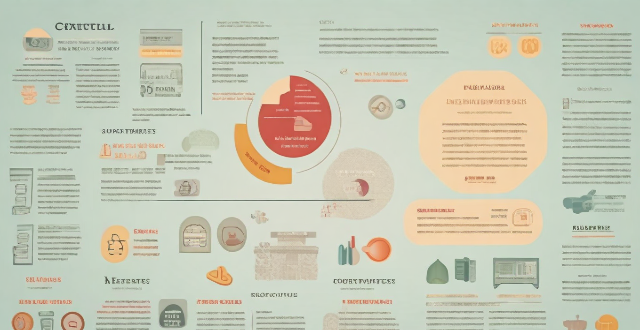
What is the GDP and why is it considered a crucial economic indicator ?
GDP is a crucial economic indicator that measures the market value of all final goods and services produced by a country in a specific time period. It serves as a measure of economic activity, national wealth, and a benchmark for international comparisons. GDP also impacts financial markets, reflects the standard of living, influences global perceptions, and drives employment opportunities. However, it should be considered in conjunction with other indicators for a more holistic understanding of an economy's health.

In what ways do immigration policies affect the cultural diversity of a country ?
Immigration policies play a significant role in shaping the cultural diversity of a country. Policies that promote multiculturalism, facilitate family reunification, and provide opportunities for legal migration can enhance cultural diversity. In contrast, strict immigration controls, deportation policies, and anti-immigrant sentiments can hinder it.

What are the key indicators of economic recovery ?
Economic recovery is a complex process that involves several key indicators. These indicators are used to gauge the health and growth of an economy after a period of decline or recession. Some of the most important indicators of economic recovery include GDP growth, employment rates, consumer spending, business investment, the housing market, inflation rates, trade balance, and stock market performance. Each of these indicators provides valuable insights into the overall health and growth of an economy.
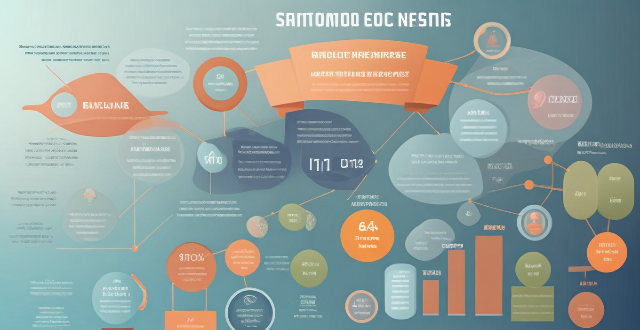
How do economic indicators affect stock market performance ?
Economic indicators significantly impact stock market performance by reflecting the health of an economy. Key indicators include GDP, inflation rate, unemployment rate, interest rates, trade balance, consumer confidence index, and manufacturing index. Each of these measures provides insights into different aspects of economic activity, influencing investor sentiment and decision-making processes. By understanding how these indicators affect the stock market, investors can make informed decisions to maximize returns while minimizing risks.

How long does it typically take to receive a tax refund after leaving a country ?
Leaving a country can be a stressful process, and one of the concerns that many expatriates have is how long it will take to receive their tax refund. The answer to this question depends on several factors, including the country you are leaving, your residency status, the method of application, and the time of year. By following best practices such as filing electronically, providing complete information, following up with tax authorities, and considering professional help, you can help speed up the process and receive your refund more quickly.

Do I need a visa if I'm only staying in the country for a few hours ?
Do I Need a Visa If I'm Only Staying in the Country for a Few Hours? Traveling to a foreign country often involves understanding the visa requirements, even if your stay is only for a few hours. The need for a visa depends on factors such as the purpose of your visit, the duration of your stay, and the specific regulations of the country you are visiting. Some countries offer visa exemptions for brief transit stays, especially if you remain in the airport and do not enter the country's territory. For business meetings or other activities that require leaving the airport, a visa may be necessary regardless of the duration. Countries often have specific rules for visits shorter than 24 hours or even up to 90 days, which may affect visa requirements. Generally, if your stay exceeds the short-term visit limit, a visa will be required. Some countries have agreements that allow citizens of certain nations to enter without a visa for short periods. For layovers or connecting flights, some countries issue transit visas that allow limited time within the country or its airports. To determine visa requirements, research the country's visa policy, consult with the airline, check travel advisories, and contact the embassy directly if unsure. Whether you need a visa for a short stay largely depends on the country's immigration policies and the purpose of your visit. It is essential to research and understand these requirements before traveling to avoid any complications at border control.

What is the relationship between interest rates and economic indicators ?
The text discusses the impact of interest rates on economic indicators such as inflation, unemployment, and GDP. It explains how higher interest rates reduce inflation and slow down economic growth by decreasing consumer spending and business investments, while lower interest rates stimulate borrowing, consumption, and investment, leading to increased inflation and economic growth. The article emphasizes the crucial role of interest rates in managing the economy effectively.

What role do small businesses play in economic recovery ?
Small businesses are crucial for economic recovery, contributing toSmall businesses are crucial for economic recovery, contributing to diversification of the economy, contributing to job creation, innovation, diversification of the economy, local economic development, and entrepreneurship. They create new jobs, adapt quickly to market changes, offer a wide range of goods and services, support local economies, and encourage self-employment. Governments should provide them with necessary support during economic uncertainties.

What happens if I don't declare all the cash I'm carrying when entering a country ?
The text provides a comprehensive overview of the potential penalties and inconveniences that may arise from not declaring cash at customs when entering a country. These include fines, seizure of funds, travel restrictions, administrative inconvenience, and loss of face. To avoid these consequences, it is recommended to be honest about the amount of cash carried, keep receipts, research regulations, and consult professionals if necessary.
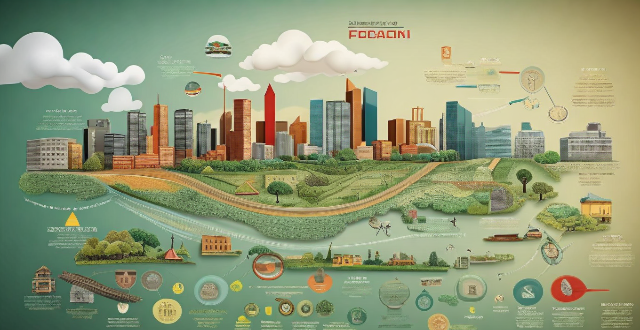
How do global economic trends affect personal wealth growth strategies ?
Global economic trends significantly influence personal wealth growth strategies by affecting factors such as interest rates, inflation, economic growth, global trade, and political stability. Understanding these trends helps individuals make informed decisions about investments and financial planning.

How do sports boycotts or bans reflect on international relations ?
Sports boycotts or bans are often used as a political tool to express disapproval or to exert pressure on another country. These actions can have significant implications for international relations, as they can be seen as a form of diplomatic action. This essay explores how sports boycotts or bans reflect on international relations and the potential consequences that may arise from such actions. Sports boycotts or bans are often used as a form of protest against perceived injustices or violations of human rights, political disagreements, or other issues that may affect international relations. Historical examples include the African nations' boycott of the 1972 Summer Olympics due to Rhodesia's inclusion, the US-led boycott of the 1980 Summer Olympics in Moscow to protest the Soviet Union's invasion of Afghanistan, and calls for sports boycotts against China over its treatment of Uighur Muslims in Xinjiang province. Sports boycotts or bans can create diplomatic tensions between countries, leading to further escalation of conflicts. They can also have economic consequences for both the host country and participating athletes, as well as limit opportunities for cultural exchange and global unity. As such, it is important for countries to carefully consider the potential consequences before engaging in sports boycotts or bans as a form of political protest.

In what ways do economic factors influence the development and assessment of climate policies ?
Economic factors play a crucial role in the development and evaluation of climate policies, affecting decision-making processes, implementation measures, and assessments of effectiveness. These influences include cost-benefit analysis considering both direct and indirect costs, as well as quantifying avoided costs and non-market benefits. Economic growth and development must balance immediate needs against long-term sustainability goals, potentially leading to tension between current jobs and investment in cleaner technologies. International trade and competitiveness are impacted by concerns over carbon leakage and green trade barriers. Public acceptance and political will are influenced by perceptions of fairness and economic impacts on different income groups, while innovation and technology development depend on investments in research and development and the affordability of technology transfer. Overall, achieving effective climate action requires a careful consideration of economic dynamics alongside environmental objectives.

What is the concept of green GDP, and how can it help measure economic progress while considering environmental factors ?
The text discusses the concept of Green GDP, which is an alternative measure of economic performance that adjusts the traditional Gross Domestic Product (GDP) by subtracting the costs of environmental degradation and resource depletion. It aims to provide a more accurate picture of a country's economic health, one that reflects the long-term sustainability of its growth. The inclusion of environmental costs in Green GDP helps promote sustainable development, encourages policy planning, and raises public awareness about the true cost of economic activities. However, calculating green GDP faces challenges such as complex methodologies, limited data availability, and political will. Despite these challenges, Green GDP offers a valuable tool for promoting sustainable development and fostering a more balanced relationship between economic growth and environmental protection.

What are the benefits of immigrant integration for both the individual and the host country ?
Immigrant integration is crucial for both the individual and the host country, offering benefits such as cultural exchange, economic opportunities, social support, diversity and inclusion, population growth and aging, and improved international relations. By embracing immigrant integration, we can create a more harmonious and prosperous society for all.
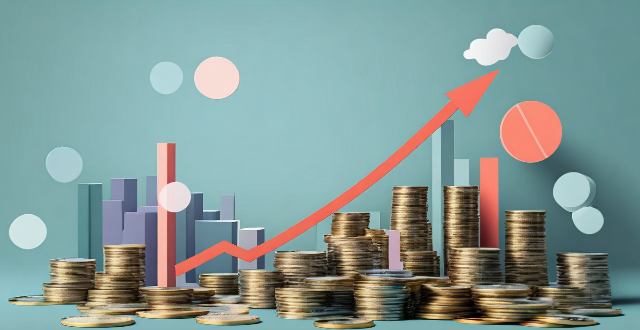
Can economic indicators accurately predict a recession ?
Economic indicators, such as GDP growth rate, employment rate, inflation rate, interest rates, consumer sentiment, and manufacturing/service sector activity, are used to gauge the health of an economy. While these indicators provide valuable insights, their ability to predict a recession is not absolute due to limitations like lagging indicators, false signals, external factors, and policy responses. A combination of indicators and a probabilistic approach can improve accuracy in predicting economic downturns.

How can we balance economic development and water resource protection ?
Water resources are crucial for economic development but must be protected to ensure sustainability. Strategies for balancing these goals include prioritizing sustainable practices, implementing regulatory measures, fostering collaboration and partnerships, investing in infrastructure and technology, and educating and creating awareness. By adopting these approaches, we can achieve a balance between economic growth and water conservation, ensuring long-term sustainability for all.

What impact does consumer confidence have on economic recovery ?
Consumer confidence is a key driver of economic recovery. It stimulates growth, boosts employment rates, reduces unemployment, and increases government revenue. To improve consumer confidence, governments should encourage stable economic policies, provide financial education, promote transparency, and invest in infrastructure.

How do economic systems contribute to environmental problems and climate change ?
Economic systems, especially capitalism and industrialization, significantly impact the environment by promoting overproduction, waste, and reliance on fossil fuels. Issues such as built-in obsolescence, global trade emissions, and exploitation of natural resources exacerbate environmental problems. Additionally, population growth and urbanization increase consumption, while market failures and regulatory gaps often overlook environmental costs. Addressing these challenges requires a shift in economic priorities towards sustainability.

How can we balance economic growth with environmental sustainability ?
Balancing economic growth with environmental sustainability requires a multifaceted approach that includes promoting green infrastructure and renewable energy, encouraging sustainable business practices, fostering innovation and technology development, educating and engaging stakeholders, and implementing policies and regulations. By taking these steps, we can create a more sustainable future where economic prosperity coexists with environmental well-being. Achieving this balance will require ongoing effort from all sectors of society, including governments, businesses, communities, and individuals alike.
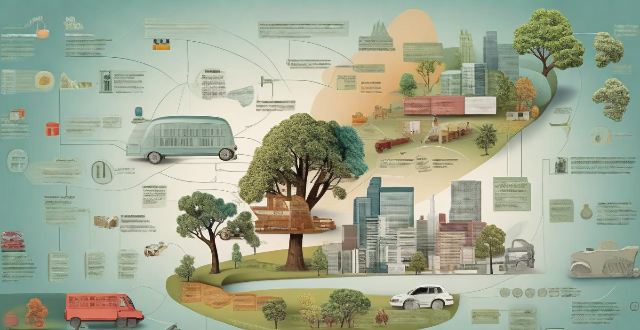
What is an economic stimulus plan ?
An economic stimulus plan is a government policy aimed at boosting a country's economy during times of slow growth or recession. The primary goal of such plans is to increase consumer spending, encourage business investments, and create jobs, thereby stimulating economic activity and promoting overall growth. Key features of an economic stimulus plan include tax cuts and rebates, government spending on infrastructure projects, monetary policy adjustments, direct assistance to businesses and individuals, and incentives for investment. Benefits of an economic stimulus plan include increased economic growth, job creation, long-term gains, and reduced poverty rates. However, potential downsides of an economic stimulus plan include national debt, inflation risks, crowding out effect, and short-term vs long-term effects. In conclusion, an economic stimulus plan is a multifaceted approach employed by governments to revive flagging economies. While these plans can have significant positive impacts on growth, employment, and overall well-being, they must be carefully designed and implemented to minimize potential drawbacks such as increased national debt and inflation risks.

What is the outlook for the European Union's economic recovery ?
The economic recovery of the European Union (EU) depends on political stability, global economic conditions, and domestic policies. Unity among member states and effective governance are crucial for managing crises and implementing growth-promoting policies. Global trade dynamics and supply chain disruptions also play a significant role. Domestically, fiscal stimulus, structural reforms, and a balanced green transition are key. The outlook is optimistic but uncertain, with many influencing factors.
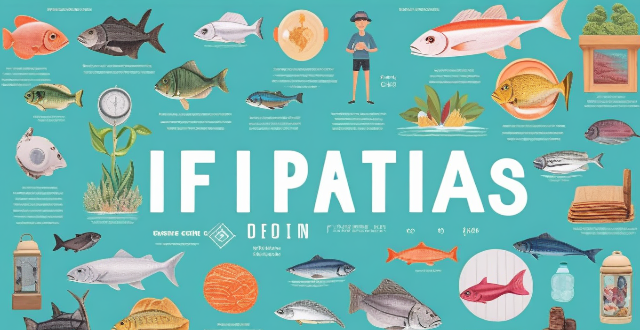
What are the economic benefits of biodiversity ?
Biodiversity plays a significant role in the global economy by providing various economic benefits. These include increased resilience to climate change, support for sustainable agriculture, tourism revenue, pharmaceutical and medical research opportunities, ecosystem services, fisheries and food security, cultural and aesthetic value, innovation and education, risk management and insurance, and trade and livelihoods. Preserving biodiversity is crucial for maintaining these economic benefits across different sectors.